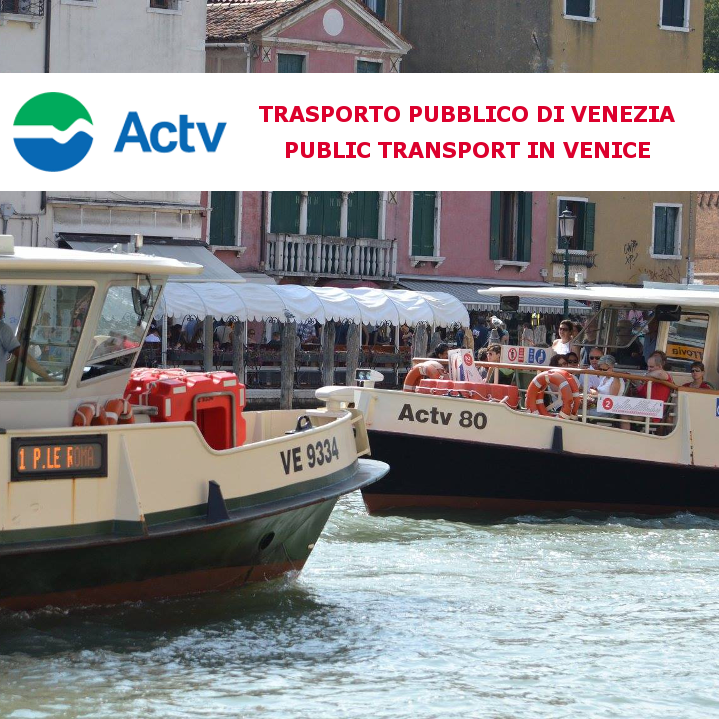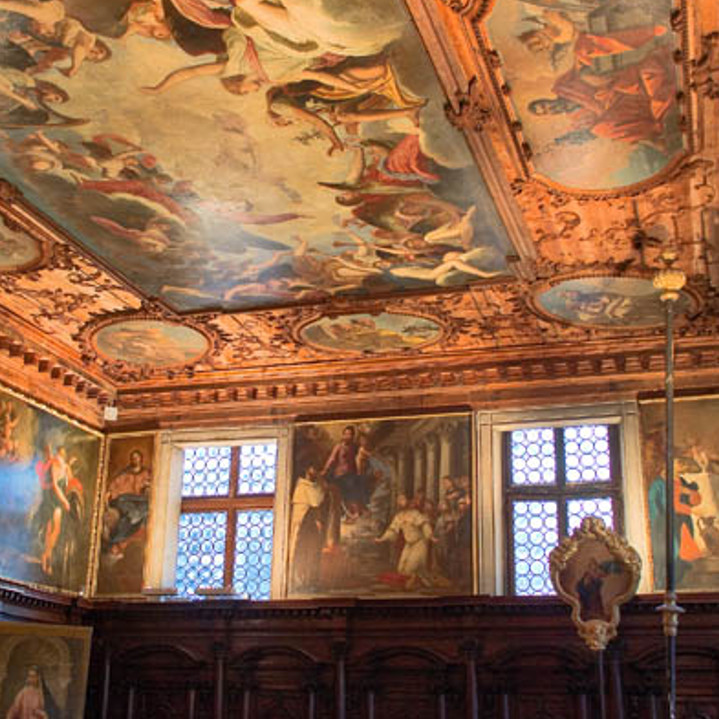You are here
Saint Marks's square, Venice's monumental heart
PIAZZA SAN MARCO, THE ONLY SQUARE IN VENICE

Saint Mark's Piazzetta
ph. Diana Robinson CC BY-NC-ND 2.0 via Flickr
Few other places in the world have entered our imagination as fully as St Mark's Square (Piazza San Marco, in Italian), which has been in every traveller's dream for centuries. Famous for its Basilica and the Doge's Palace, museums and historic cafés, this is also the only square in the city: all the others in Venice are called 'campi' and 'campielli'.

Saint Mark's Square
ph. Giorgio Bombieri Comune di Venezia
SAN MARCO, THE HEART OF VENICE
Since the 9th century, the Piazza has gradually become a concentration of art and history treasures. It is difficult for us now to imagine how it originally looked, much smaller and cultivated with vegetable gardens up to the Batario brook, which crossed it about halfway before it was filled in. Across the rio was the church of San Geminiano, which has now disappeared: in its place is the Ala Napoleonica with the Correr Museum, which recounts, in the rich sections of its collections, the civilisation, history and art of Venice.
The very first church was dedicated to St Theodore, protector of the city before St Mark's; next to it, overlooking the water, stood the ancient ducal castle, fortified by towers and protected by a wall. The Piazzetta did not yet exist; the water of the lagoon reached as far as where the Loggetta del Sansovino stands today. It was with the arrival of St Mark's remains in Venice in 828 and the building of the first basilica that the area began to take on the appearance of the monumental heart of the city.

Saint Mark's Basilica
ph. Rob Hurson CC BY-SA 4.0 via Wikimedia Commons
THE TREASURE OF SAN MARCO
The other buildings facing the square today date back to different eras, from the Renaissance to the 19th century.
While one side is occupied by St. Mark's Basilica, the other three sides of the square are delimited almost entirely by the buildings of the Procuratie, divided into three wings: the recently restored Procuratie Vecchie to the north, with the Clock Tower next to it; the Napoleonic Wing to the west and the Procuratie Nuove to the south, where the National Archaeological Museum of Venice is located, in continuity with the rooms of the Correr Museum and the Museum Rooms of the Biblioteca Nazionale Marciana.
The Procuratie take their name from the fact that they were intended for the Procurators, high officials who administered the city and who by law had to reside near the Doge's Palace.

Saint Mark's square
ph. Giorgio Bombieri Comune di Venezia
HOW TO RESPECT ITS BEAUTY
The whole area of St Mark's Square is a monumental site of particular value, located at the centre of the UNESCO-protected 'Venice and its Lagoon' site.
Here, as in the entire historic centre of Venice, there are rules to be respected to help maintain the extraordinary beauty of this place. In particular, it is forbidden to eat and drink while sitting on the ground, on the banks and foundations, monuments, bridges, steps, wells, shop windows, and on the high-water footbridges. In addition, perhaps not everyone knows that it is also forbidden to feed pigeons and doves.
In the event of non-compliance there are administrative sanctions ranging from 25 to 500 euro, up to immediate removal from the site.





